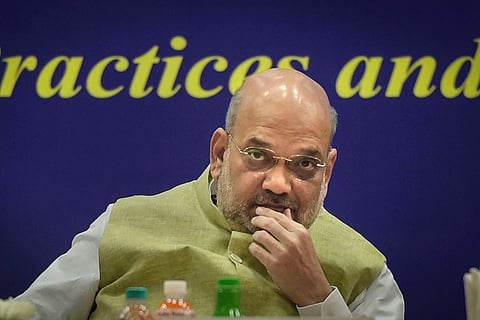

Union Home Minister Amit Shah earlier this week announced that Census 2021 will also have the National Population Register (NPR), adding that the process will be digital and a mobile app will be used in the exercise.
"A digital NPR will help in solving several issues, like law and order and gender equality. "It would be a solution to the multifarious problems facing the country – from effective maintenance of law and order to an efficient implementation of welfare schemes like MGNREGA, food security and nutrition campaigns," Shah said.
What is NPR?
The National Population Register (NPR) is a register of the ‘usual’ residents of the country. A usual resident is defined as a person who has resided in a local area for the past six months or more, or a person who intends to reside in that area for the next 6 months or more.
The database under the NPR will be maintained by the Registrar General of India and Census Commissioner of India, Ministry of Home Affairs.
The NPR is prepared at the local (Village or sub-Town), sub-District, District, State and National level, under provisions of the Citizenship Act 1955 and the Citizenship (Registration of Citizens and Issue of National Identity Cards) Rules, 2003. It will be mandatory for every usual resident of India to register in the NPR.
The exercise will be carried out during the house-listing phase of Census 2021, during April to September 2020, in all the states and union territories, except Assam, where a National Register of Citizens was recently released.
The data that will be stored
The objective of the NPR is to create a comprehensive identity database of every usual resident in the country. The database will contain demographic as well as biometric particulars. Every usual resident has to provide the following data: name, relationship to head of household, father’s name, mother’s name, spouse’s name (if married), sex, date of birth, marital status, place of birth, nationality (as declared), present address of usual residence, the duration of stay at present address, permanent residential address, occupation or activity and educational qualifications.
The data collected during the NPR will then be sent to the UIDAI (Unique Identification Authority of India) for verification with Aadhaar details. The cleaned database, along with the UID Number, will then be sent back to the Office of the Registrar General and Census Commissioner, India (ORG&CCI) and would form the National Population Register.
According to a recent report in the Times of India, mobile numbers, PAN card details, driving licence, voter ID details, as well as Indian passport numbers, will also be collected from all usual residents of India.
Data privacy reservations
The fact that Aadhaar details will be added to the NPR database has given rise to concerns of data privacy. In the past, reports have stated that Aadhaar data has been compromised on multiple occasions even as the UIDAI continues to deny that there have been breaches. The personal data that the government is planning to collect for NPR is quite large and there are concerns whether the government is equipped to protect the citizens’ data.
Apart from data privacy, concern has also been voiced over the exercise as a whole. NPR will be the base for a nationwide National Register of Citizens and will be similar to the list of citizens of Assam released last month. During the NRC exercise, there were several instances where some members of a family featured in the draft list while the others did not. The idea of NPR is a likely cause for worry since there could be such discrepancies in the NPR as well.
The history of NPR
The NPR is not a new proposal – in fact, it was first pushed as an initiative in 2010, under the UPA government. The objective was that the exercise will help in improving security by checking for illegal migration, providing services to the residents under government schemes and programmes, vetting identity frauds, and improving planning.
In 2010, the data for the National Population Register was collected along with the house-listing phase of Census of India 2011. This data was updated once in 2015 by conducting door-to-door survey. As of date, the digitisation of the data has been completed.